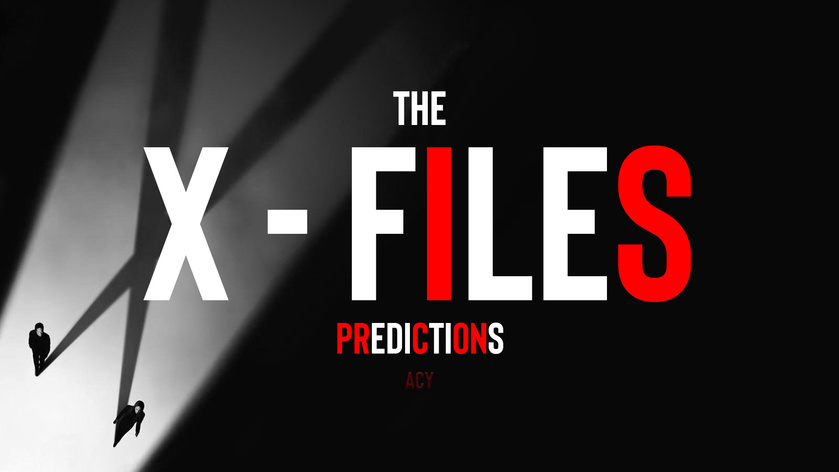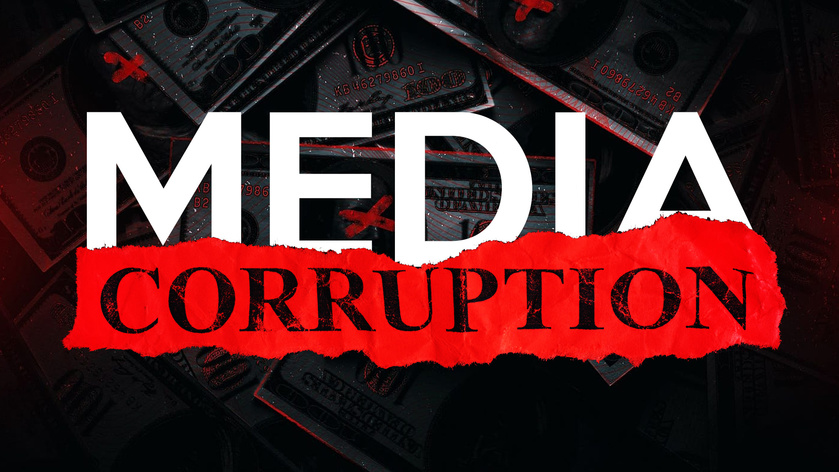Alright. Everyone saw the title… and they’re wondering “what could this trend possibly be… and why should I care.” … to answer that question as quickly as possible… the trend is SMS protect and phone verification by major video game titles (such as overwatch 2… as well as the upcoming Call of duty modern warfare)... and while many news creators have briefly touched on the subject and churned out constant videos for maximum viewership… i haven't seen anyone yet thoroughly discuss WHY this is a terrible thing… beyond shallow citation of a few social media outbursts… and backlash on reddit.
It seems to me that instead of delving into WHY the move itself is an impending catastrophe for average players… video game creators are simply regurgitating the social atmosphere on their most trafficked media sites. Thats fine, and certainly some of the largest creators in the entire Youtube ecosystem that cover video games are raking in colossal viewership by doing this… but over the years I have started to take pride in looking for coverage angles that have largely been ignored… and right now… this feels like one those angles.
Its been covered on the surface, ad nauseum, by more channels than I count. “Phone verification bad”… “gamers are angry”… “privacy”... “unfair”... “restrictive”... etc etc… but not a single one of those videos (that I have seen) will tell you precisely WHY it is such a terrible trend… none of them delve into source material on how it will directly impact hundreds of millions of people… and not a single one of them adequately examines the topic beyond reading headlines.
Effectively… Activision blizzard is one of the largest publishers in the entire industry (Sony is fighting tooth and nail to prevent call of duty from becoming exclusive to xbox in any capacity during the takeover by Microsoft)... and a now multi-faceted decision to require SMS protect phone verification in major titles BY activision blizzard… is becoming the next frontier of harmful or disruptive policy in video games.
Lets just do a quick overview on what the policy actually is… before delving into WHY you should be very concerned. On the surface… its a simple change. Overwatch 2 (which has now SLIGHTLY backtracked on this)... and Call of duty Modern Warfare 2… on release… required (or will require) that users implement a verifiable phone number in their battle.net account. This is described as an effort to “prevent cheaters or disruptive players” as a part of their self titled “defense matrix”... but theres more.
According to an official Overwatch 2 announcement… QUOTE “A phone number can only be used once when making a new account, and certain types of numbers, including pre-paid and VOIP, cannot be used for SMS Protect.” Thats the key right there… because when you take this one… seemingly innocuous policy change… that has sparked a fair bit of social media backlash, sure… but how bad could it really be… and zoom out on a global scale, connecting a series of dots that so far no one appears to have connected… you will realize that this change is RIDICULOUS… and should never be allowed to proceed.
Lets really dig in here. First is definitions. Telecom companies largely offer two types of services. Pre-paid phone plans… and “post paid” phone plans. Pre-paid is pretty straightforward… you buy minutes or data and you use it till its gone, topping up when you feel like or waiting till theres more next month… and “POST paid” phone plans follow a subscription billing format where you have a set payment amount per month (usually over the span of multiple years under contract) with higher data limits and more features.
Activision Blizzard is now taking two of their most popular titles… (call of duty being one of the most popular entertainment franchises in all of history) and pushing for a POST PAID ONLY SMS verification framework. Now… for everyone who already HAS a postpaid cellphone plan… maybe its yours… a family plan you are under… or your parents pay for it… who knows… for anyone who already HAS this… the change isn’t all that concerning. Make the account, use the number… play the game… etc. However… for anyone who does NOT have a postpaid phone plan… this is a highly disruptive change that effectively takes the relative cost of a game you want to play… and multiples it by over a thousand percent.
Let me explain. In various PR statements… the Overwatch 2 developers (Blizzard)... stated that “Moving to free-to-play for Overwatch 2, together with enabling cross-platform with cross-progression, means anyone can access the game and join their friends, for free, which we are incredibly excited about.”... Thats a nice sentiment… but it is entirely untrue. Overwatch 2 is now “free to play”... but if it requires SMS phone verification from a NON pre-paid plan… no it isnt.
Even the cheapest non prepaid plans from major carriers will run you 30… 50… even 70 dollars a month. A few simple searches of popular phone plan vendors will show you that pre-paid plans are cheapest… post-paid plans are more expensive… and if you are locked into a two year post-paid phone agreement… at 30 dollars a month (for example)… thats over 1200 dollars in total.
Overwatch 2… now being “free to play so that friends can join each other”... now has a hidden cost of … what… maybe a thousand dollars? Or at the very least hundreds depending on your plan… and is melded together with a telecom contract that not everyone has.
Lets expand on this. According to statista… 40% of global respondents in a survey on personal phone plan… selected “prepaid”... with 6% stating they did not know. What does that mean? Well… if prepaid phones just “don't work” with overwatch 2 and call of duty modern warfare… its 40% of the population that cannot play the games unless they pay hundreds of dollars to do so (opening a third party contract in the process)… or resort to illicit methods of duping the system.
Not a good change… but were just getting started because the reality behind this trend is actually unbelievable if you consider global finance trends… and connect a series of dots as far back as 2008.
According to “pandemic research” from an organization called DING… (Referring to GPI… or “Global Prepaid Index”)... 7000 participants were surveyed (globally)... resulting in 79% of responses indicating that they engaged with “at least one touchpoint in the prepaid market”...
Thats a high number… but if the prepaid market included a number of different industries and options… how does it relate. Simply put… it relates because 61% OF that 79%... indicated that their touchpoint with the prepaid market… was phones… thereby indicating that roughly 48% of these participants… have prepaid phone plans.
Now, this number is marginally different when compared to 40% from statista… but we can explain this by delving into research behind pandemic spending and consumer decision making. According to lowenstein… QUOTE “As of the third quarter of 2020, there are about 74 million prepaid subscribers in the United States, according to New Street Research.”...
Thats actually LOWER than the global average… sitting at roughly 25% but if we read on… QUOTE “The other major development this year is COVID-19 and its impact on the economy. At COVID’s onset in March, several Wall Street analysts predicted a “shift to value,” which would mean a rise in prepaid’s share of the market, which occurred in a major way in the 2008-2009 recession. That hasn’t really happened yet. This is due, in part, to the fact that the delta between postpaid and prepaid prices is much narrower than it was 10 years ago. Another factor could be that the Cable MVNOs have taken some share that might have drifted to prepaid. However, if the recession deepens and the economic disruption is protracted, we could well see some significant shifts in subscriber behavior toward prepaid.”
Lets cross reference this to be sure. According to the new york times (in 2009) titled More Customers Give Up the Cellphone Contract... QUOTE “Sprint and T-Mobile, the No. 3 and No. 4 carriers in the country, are particularly aggressive about courting prepaid customers. In the fourth quarter, 355,000 of the 621,000 customers that T-Mobile added were prepaid users.”...
That figure is over 50% of new users being under a prepaid format, as telecom companies specifically target that particular demographic and service… during the third quarter of 2008… (aka… the great recession)... and according to lowenstein… “if recession deepens… and the economic disruption is protracted… we could see significant subscriber shifts… towards prepaid.”
Hopefully the picture is now forming… but lets keep adding pieces to the puzzle. The United states… right now… is undergoing “Quantitative tightening”... this is a complex thing… but loosely refers to the fed raising interest rates periodically to combat inflation. The target is 2%... right now we are WAAYYYYY above that.
According to economist Steve Hanke (and also according to the data itself)... as of October 2022… the dollar is gaining relative strength against MOST other currencies around the world. In context… UN agencies… and the IMF… are directly warning of a global recession if the FED does not ease tightening.
However… the federal reserve is a domestic agency… and at the root of their policy making agenda… is domestic inflation. As of right now, there seems to be no impact of these warnings, and no plan whatsoever to reverse course… leaving us on a pathway to global recession (according to numerous experts)... in the aftermath of a pandemic driven financial whirlwind… and none of us REALLY know how bad it will get.
Pulling all of these puzzle pieces together… we see a very clear picture. Something like 40 to 50 percent of the global population… uses pre-paid phones. Protracted economic downturn radically increases not only the percentage of people USING those phones… but the advertising and consumer priority placed on acquiring customers who do so… and all of these factors are coming together at once… as a financial storm gains speed on a global scale.
Video games like Call of Duty and Overwatch 2… are implementing SMS protection… that REQUIRES a certain type of telecom contract… at a time when the ratio of users who are actually willing to HAVE that contract (due to excessive cost) is about to dramatically fall. During 2008 and 2009… users were switching plans in DROVES because a pre-paid option would save hundreds, if not over a thousand dollars per year depending on household size… and yet if the same thing happens now… you would be barred from accessing what are purported to be “free” video games.
The question is actually quite simple. If this trend were to continue, and take hold (think about microtransactions… or loot boxes… or games as a service… and how one example became many… became widespread industry norms) Are we ok with denying access to roughly half the global population of users who ordinarily WOULD be able to play… because a third party and HIGHLY expensive telecom contract is now required… in a period of time where pre-paid cheaper options are infinitely more desirable.
To once again reiterate… this problem does not affect users who currently enjoy the benefits of a postpaid plan… but if we broaden our perspective just a bit… this new trend would be extremely damaging to the accessibility of popular games.
To that end… im left wondering “why”... Sure it may combat the disruption of a small minority who routinely create new accounts when suspended… but it also means more information stored by third parties (like your phone number) that is vulnerable to data breaches. It means less people (hundreds of millions of them) who actually COULD play the game without this new policy… will be denied access without spending obscene amounts of money in another contract…
From top to bottom… its a change that harms a very large portion of the accessible market by turning something that otherwise should be available… into a highly expensive non-option. I have no idea why they would actually DO this… because gaming publishers do NOT care that much about player-experience when compared to raw profit and accessible market… that much is certain… so why on earth would this policy change make sense.
Speculation? Maybe they have a massive telecom deal. Maybe they are literally getting paid to do this because there WILL be some portion of the player base that open postpaid plans just to access call of duty… or make a battle.net account. Is it the ever tightening initiative of total surveillance and interconnectedness? Is it a back room contract with major technology firms? I have no idea… but the fact remains that this is one of the least discussed yet most concerning trends that I have ever seen arise in the video game industry period.
It’s got plenty of backlash on a surface level… but going deeper it is legitimately harmful. Blizzard has pretended that their goal with a free to play version of overwatch 2 is to increase access… and make it so “everyone can play together”... AND they have since walked back this phone requirement to only BRAND NEW battle.net accounts… but this new Defense matrix policy change has the precise opposite impact of “increasing access”... by actually DENYING access… to nearly half of all people with cell phones… at a time when that number is going to DRAMATICALLY increase.
Bottom line… sometimes things happen in the video game world that deserve severe backlash. This is one of them. It should be commonly accepted in the space that this is a damaging move… an unacceptable overreach… and the exact opposite of pro-consumer behavior. Maybe they will still do it… but at the very least we should all be aware.


















